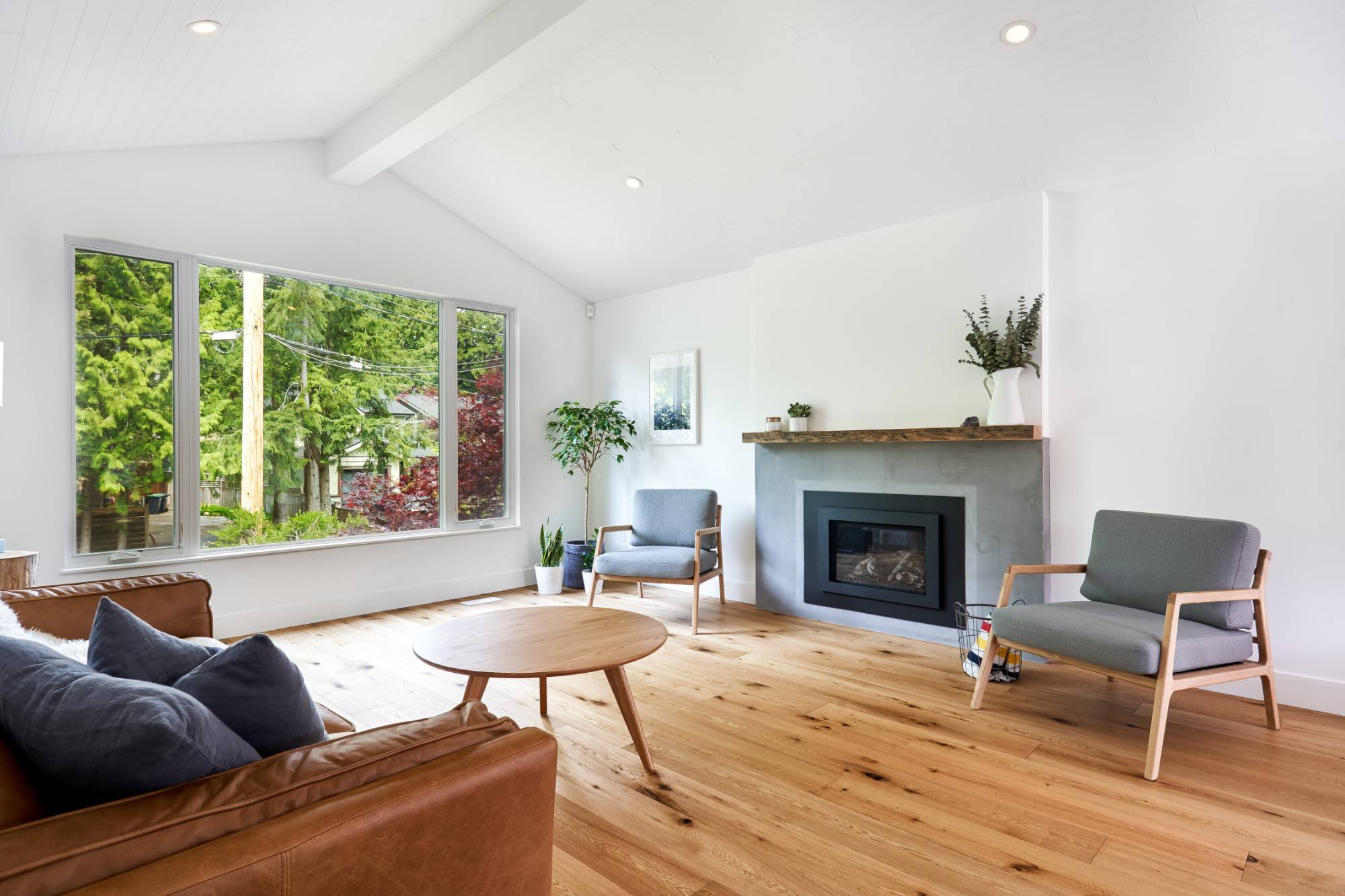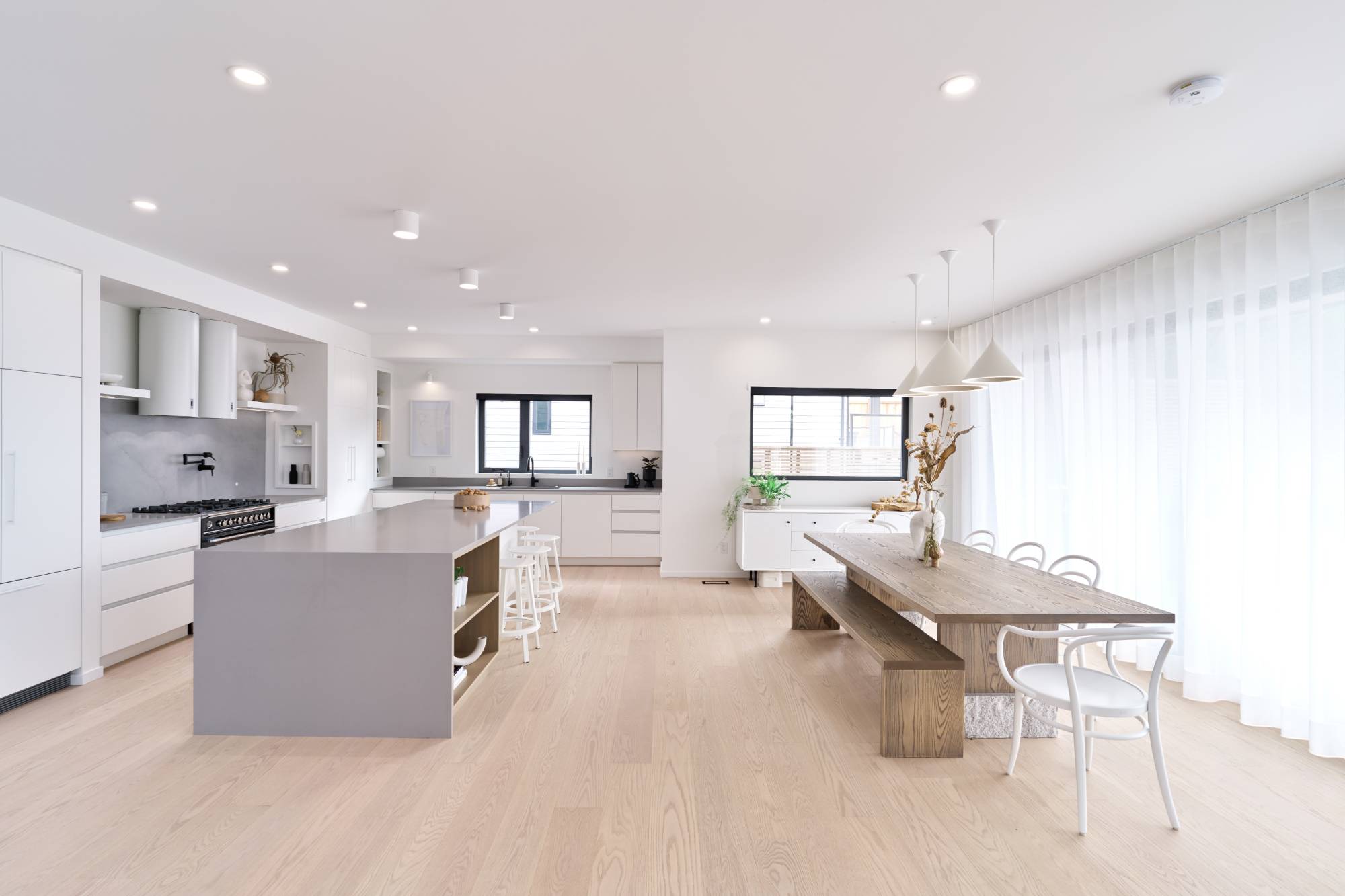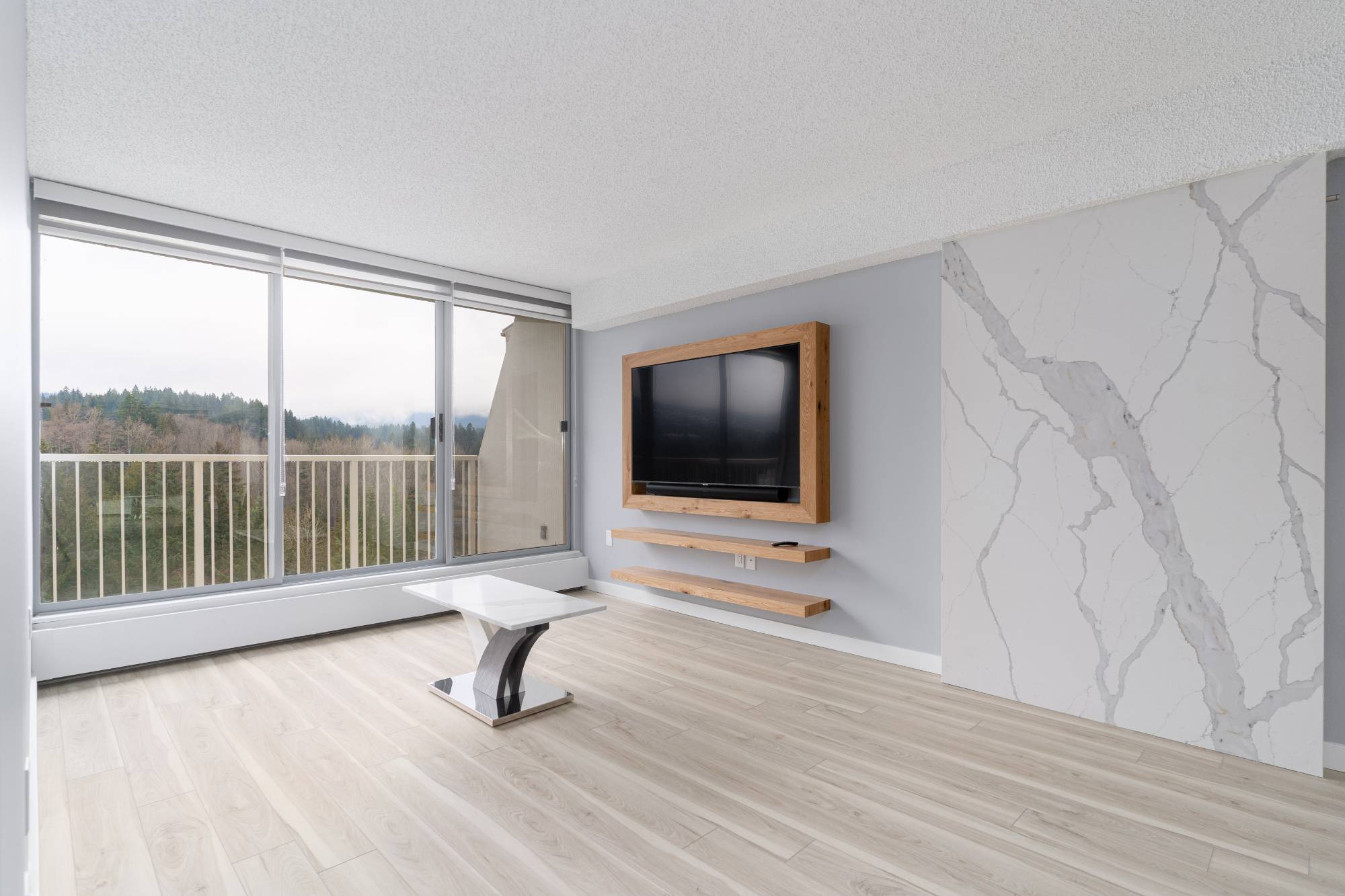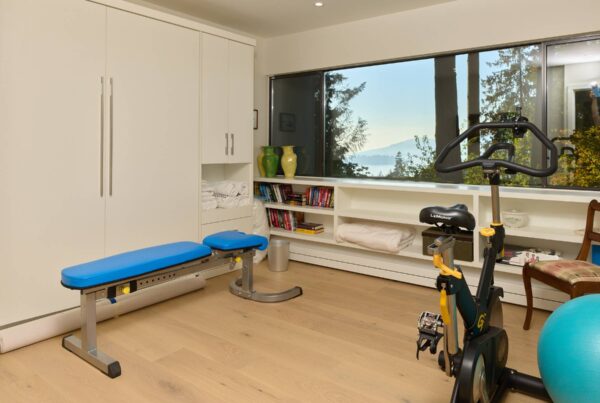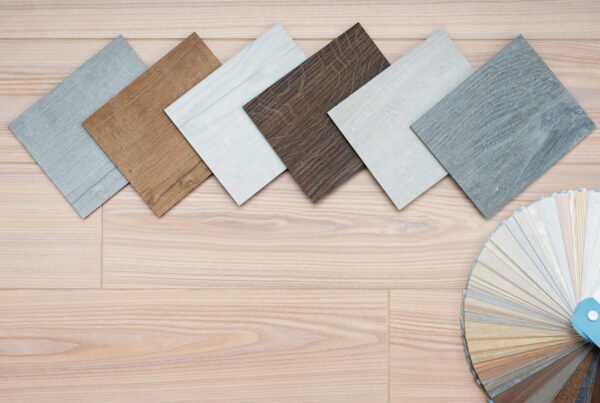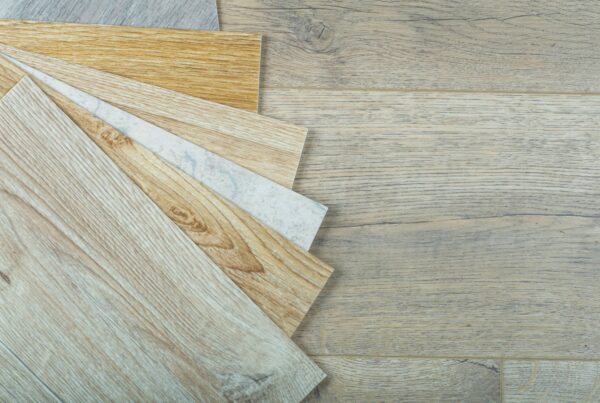When it comes to selecting the perfect flooring for your home or business, the decision often boils down to engineered hardwood floors or traditional hardwood floors. Both options have their own unique characteristics and advantages. In this blog post, we will explore the pros and cons of each flooring type, allowing you to make an informed decision that suits your needs and preferences.
Pros of Engineered Hardwood Floors:
- Increased Dimensional Stability: Engineered hardwood floors are designed to combat the natural expansion and contraction caused by fluctuations in temperature and humidity. The construction of engineered hardwood, with multiple layers of wood stacked in different directions, provides enhanced dimensional stability compared to traditional hardwood floors.
- Suitable for Various Environments, Including Basements: Unlike traditional hardwood floors, engineered hardwood is less susceptible to moisture damage. This makes it an excellent choice for areas with higher humidity levels, such as basements or areas prone to seasonal changes.
- Wide Range of Installation Methods: Engineered hardwood floors offer flexibility in installation. They can be glued, nailed, or floated, depending on your preferences and the requirements of your space. This versatility allows for easier installation, especially in scenarios where traditional hardwood floors may pose challenges.
- Compatible with Radiant Heating Systems: For those seeking the added comfort of radiant heating, engineered hardwood floors are an excellent option. They have better resistance to temperature fluctuations, making them compatible with radiant heating systems that provide warmth from underneath the floor.
- Eco-friendly and Sustainable Sourcing Options: Engineered hardwood floors often utilize sustainable sourcing practices, including the use of recycled or reclaimed wood. By choosing engineered hardwood, you can contribute to the preservation of forests and reduce environmental impact while enjoying the beauty of wood flooring.
- More Resistant to Moisture and Humidity: Engineered hardwood floors are constructed with a top layer of hardwood veneer and multiple layers of plywood or high-density fiberboard beneath. This layered construction offers better resistance to moisture and humidity, reducing the chances of warping or cupping compared to traditional hardwood floors.
Cons of Engineered Hardwood Floors:
- Limited Refinishing Options: One of the downsides of engineered hardwood floors is their limited refinishing options. The top layer of hardwood veneer can only be refinished a few times, depending on its thickness. This means that over time, the floor may lose its ability to be restored to its original condition.
- May Have a Shorter Lifespan Compared to Traditional Hardwood: While engineered hardwood floors are durable, they may have a shorter lifespan compared to traditional hardwood floors. This is because the top layer of hardwood veneer is thinner than solid hardwood, reducing the number of times it can be refinished and limiting its overall longevity.
- Can Be More Expensive Than Other Flooring Materials: Engineered hardwood floors tend to be more expensive than alternative flooring materials such as vinyl. However, the cost can vary depending on the quality of the materials used and the specific supplier or flooring company you choose.
- Potential for Formaldehyde Emissions in Lower-Quality Products: Some lower-quality engineered hardwood floors may contain adhesives or finishes that emit formaldehyde, a harmful volatile organic compound (VOC). To avoid this concern, it’s essential to select products from reputable flooring suppliers that adhere to strict quality standards and use low or no-VOC finishes.
- May Have a Less Authentic Appearance Compared to Solid Hardwood: Although engineered hardwood floors offer a beautiful and natural look, some individuals may prefer the unique charm and authenticity of solid hardwood floors. The layered construction of engineered hardwood can give it a slightly different appearance and texture, which may not appeal to everyone.
Pros of Traditional Hardwood Floors:
- Classic and Timeless Aesthetic Appeal: Traditional hardwood floors exude timeless beauty and elegance. The natural grains and warm tones of solid wood bring a sense of luxury and sophistication to any space, making it a popular choice among homeowners and designers.
- Can Be Refinished Multiple Times, Extending Lifespan: One of the significant advantages of traditional hardwood floors is their ability to be sanded and refinished multiple times. This process helps remove scratches, stains, or signs of wear, allowing you to extend the lifespan of your flooring and maintain its original charm.
- Increases Property Value: Investing in traditional hardwood floors can significantly increase the value of your property. Potential buyers are often willing to pay a premium for homes with authentic hardwood flooring, considering it a desirable and long-lasting feature.
- High-Quality Options Available for Long-lasting Durability: Traditional hardwood floors are known for their durability and strength. With proper installation and maintenance, high-quality hardwood floors can withstand heavy foot traffic and last for generations, making them a reliable investment.
- Natural and Unique Variations in Wood Grains: Each piece of traditional hardwood is unique, showcasing its distinct patterns, grains, and colors. This natural variation adds character and depth to your flooring, creating a one-of-a-kind aesthetic that cannot be replicated.
Cons of Traditional Hardwood Floors:
- Susceptible to Moisture Damage and Warping: Traditional hardwood floors are more susceptible to moisture damage, which can cause warping, cupping, or gapping. Care must be taken to prevent exposure to excessive moisture, making them less suitable for areas prone to spills or high humidity levels.
- Requires Acclimation Time Before Installation: Before installation, traditional hardwood floors require a period of acclimation to the environment in which they will be placed. This process allows the wood to adjust to the temperature and humidity of the space, ensuring optimal performance and minimizing the risk of issues post-installation.
- Higher Installation and Maintenance Costs: Compared to other flooring options, traditional hardwood floors often have higher installation and maintenance costs. Professional installation is recommended to ensure proper fit and minimize the risk of complications. Additionally, regular maintenance, such as refinishing and polishing, is necessary to preserve the floor’s beauty and longevity.
- Limited Suitability for Below-Grade Installations: Traditional hardwood floors are generally not recommended for below-grade installations, such as basements, due to the potential for moisture-related issues. The increased moisture levels in these areas can negatively impact the stability and lifespan of the wood flooring.
- Sourcing Concerns Regarding Deforestation and Environmental Impact: While traditional hardwood floors provide a natural and sustainable flooring option when sourced responsibly, there are concerns regarding deforestation and the environmental impact of the timber industry. It is crucial to choose products from certified suppliers or opt for reclaimed wood to mitigate these concerns.
Transform Your Space with Flatwater Finishes: Making the Right Choice for Engineered Hardwood Floors vs Traditional Hardwood Floors
When it comes to selecting the perfect flooring for your space, the decision between engineered hardwood floors and traditional hardwood floors can be a tough one. However, with the expertise and quality products offered by Flatwater Finishes, your choice becomes much easier.
As a trusted flooring supplier and company, Flatwater Finishes specializes in providing top-notch options for both vinyl and engineered hardwood flooring. Whether you prioritize increased dimensional stability, suitability for various environments, or a wide range of installation methods, Flatwater Finishes has got you covered. Our commitment to eco-friendly and sustainable sourcing options ensures that you can enjoy the beauty of hardwood floors without compromising the environment.
With Flatwater Finishes, you can transform your space into a stunning masterpiece, enhancing its value and aesthetics for years to come. Trust Flatwater Finishes as your flooring partner and make a confident decision for your engineered hardwood or vinyl flooring needs.

